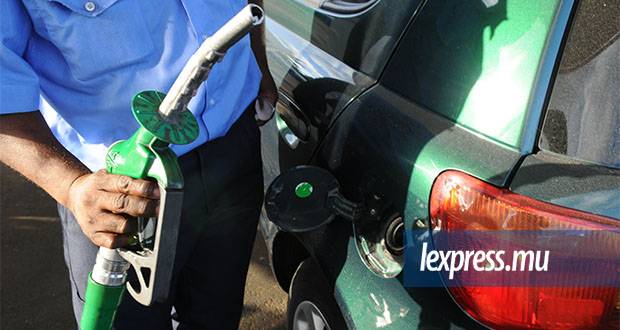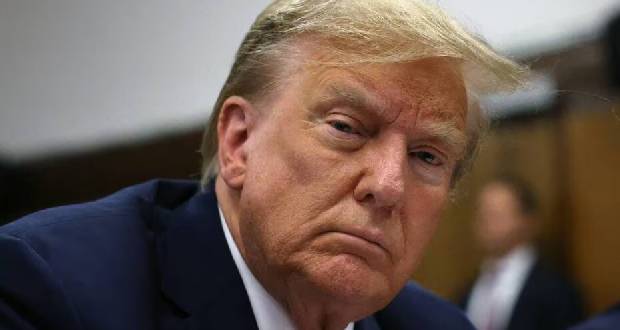Publicité
Challenges of a New Economic Model: The Need for Disruptive Thinking in Mauritius
Par
Partager cet article
Challenges of a New Economic Model: The Need for Disruptive Thinking in Mauritius

Since the 1990s, we are still trying to understand what it means to be an intelligent island. But we need to address four key areas in order to reap the fruit of change: Public sector mentality, investment, transparency and accountability, promotion, and live technospaces.
The President of Estonia
– Toomas Hendrik Ilves was a recent guest speaker at the Centre on Democracy, Development and Rule of Law (CDDRL) based at the University of Stanford. He was there to share the Estonian experience on how a relatively impoverished country that gained its independence from Russia in 1991 is now the champion of e-governance across Europe.
Estonia’s e-journey started in the mid 1990s – a time when the Internet was a novelty to most countries and thus offered a level playing field to all potential entrants. Through a combination of visionary leadership and a champion to the ICT cause, Estonia was able in a relatively short time to move from Baltic underdog to Baltic tiger! Singapore under Lee Kwan Kew tread a similar path. What is interesting is that these two countries compare to Mauritius in terms of population size, limited natural resources (except human resource) at independence and an advantageous geographical location.
The question that we should ask ourselves in Mauritius: why are we still trying to make our mark? In fact, the concept that is currently being ‘sold’ to Mauritians that of being smart through the creation of a plethora of smart cities, is no doubt an alluring notion that denotes a sense of sophistication and upward mobility. However, it is interesting to note that the idea of an information based/ intelligent island was first mooted in the mid 1990s in Mauritius. Unfortunately, 20 years down the line, we are still grappling with the notion of what it is to be intelligent, connected and now smart. In fact, the above reflection is closely related to the capacity to act in a disruptive manner.
Being disruptive: What does it really entail?
The notion of disruption is familiar to the tech world and first appeared in the conversations of geeks from the Silicon Valley where the need to constantly break away from the usual way of doing things and offer innovative and creative products is the norm. The concept of disruption has also gained traction in the area of public governance and policy making.
In late August, the Prime Minister made public his government’s Economic Statement. The intention appeared to be to re-boot the economy. Although relatively well delivered, the presentation did not really offer a break from the business as usual approach. In fact, it smacked of the notion of ‘old wine in a new bottle’. For disruption to operate on a large scale it must be part of a nation’s DNA and hence should be part of our educational system. However, four key areas have been identified if we are ready to act fast, the quick dividends to disruption might be reaped.
The need to revisit the Public Sector Mentality
In his recent speech, the Prime Minister was quite forceful on the urgent need for public sector reform and for public officers to become ‘active drivers’ and ‘passionate facilitators’. We have also heard of the creation of a ‘Civil Service College’. A quick look at the higher echelon of the public sector – cabinet secretaries, Senior Executive Officers, permanent secretaries, heads of public and parastatal bodies and we quickly become disenchanted by the calibre of these people. Many of them have gravitated to positions of responsibility through a sheer process of time of service, whilst others only merit is to be in the good books of those in power!
Public sector upgrade is an important feature of a number of governments wanting to infuse a new culture and countries such as China, Singapore, India, Kenya are actively investing so that their cadres are trained by the best public policy institutions, familiarise themselves with key policy tools and learn from existing best practices. I am sure that a number of key leadership and public policy institutions would be willing to develop tailor made training for some of the top Mauritian public sector cadres.
Another noticeable feature of the Mauritian public sector more so with the advent of the new government is the need to bring back from retirement past civil servants! Why don’t we invest in training young and talented people to take over? We should also think of attracting Mauritian brains and expertise that have proven themselves overseas. I am aware that this was to be the intention of the current government but it is yet to materialise.
Promotion and Investment: Endless and Futile Road Shows
Country and sectoral promotion has retained the outdated road show approach. Road shows are great at generating on the spot attention. However, one questions their effectiveness and efficiency once the delegation is gone. In fact, the nurturing and promotion of new business opportunities require embedded and dedicated presence. To that effect, it is interesting to note the strategy adopted by the government of Singapore in its quest to become a fully integrated Smart Nation.
InfoComm Investments (a wholly owned subsidiary of the InfoComm Development Authority (IDA) of Singapore) has a fully operating office in the heart of Silicon Valley. Its aim is to introduce Singaporean tech businesses to their American counterparts and encourage new venture capital funds for startups.
Disruption and new thinking must also occur in the manner in which we operate our diplomatic mission overseas. In fact, if well thought through they could potentially become hotbeds for promotion and investment. Obviously, this requires putting the right people in the right places! Therefore it is imperative that institutions like the Board of Investment and other promotion related entities remain focused and targeted in their approach.
Transparency and accountability: The Value of Open and Big Data
Data is increasingly becoming a new pillar of growth. In a number of established and emerging economies there has been the liberation of public data aimed at enhancing the quality and delivery of public service. This is known as open data which makes available scores of datasets – from statistics on road accidents, the number of doctors working in public hospitals to the state of buses on our road. These datasets lend themselves to analysis and interpretation in the hope of generating solutions to existing problems. Open data in fact ushers in transparency and accountability within public governance when properly executed. This brings me to the issue of big data. Big data was referred to as a new area of intervention during the Prime Minister’s Economic Statement. I believe that open data is in fact a precursor to big data as the former ensures that the necessary ecosystem is in place.
For at least a decade now, there have been discussions and proposals to put into operation an e-government platform. In fact, a number of activities have gone online and the one that has had a certain measured success is that of the e-filling of one’s annual income tax. However, e-government does not tantamount merely to the decentralisation of government transactions but should in a more substantive manner enhance the quality of life of its citizens.
In fact, for the whole egovernance experiment to work, we imperatively require two elements: a degree of social trust in the system and the clear understanding that citizens own their own data. Judging from the recent level of frenzy generated by the biometric identity card, it is clear that that the approach to e-governance must include a conversation with all citizens. Singapore and Estonia did it and it has now become a normalised feature of their citizen’s daily life.
Creating Live Technospaces
Innovation, creation and ultimately disruption usually happen in open and organic spaces where the mind is free to explore, experiment and if need fail to allow for future successes. The Prime Minister during his speech spoke about the need to develop a ‘techno entrepreneurial culture’. How does one achieve this? Usually this can be facilitated through the creation of technospaces – better known as I-hubs. These spaces should by all means not be closed or restricted by entry.
It is worth noting that despite all the talk of making Mauritius an intelligent, connected and now a smart island – no dedicated open space currently exists where an ordinary citizen, a techie or a potential funder can physically meet to pitch and discuss ideas. There are some great examples in the world of thriving hubs that we could develop partnership with. Here the idea is to move away from a bureaucratic institution to one that is open, inclusive and organic. In fact, some years ago, an ICT Academy was launched in Mauritius but it is quite hard to quantify or for that matter qualify the impact it has had.
The creation of technospaces is closely related to that of open data. In fact, in a number of countries (Kenya, Nigeria, Ghana, Uganda, South Africa), there are multiple examples where the government, parastatal or private sector support Data Hackathons aimed at generating ideas and solutions from diverse communities. Nigeria’s open data community regularly runs hackathons on a range of issues including public budgeting, oil revenues and quality of healthcare to name a few. It is probably high time that Mauritius joins the Open Data movement and shows its commitment to transparency and accountability.
As we begin the journey towards disruptive thinking, let us ensure that every single citizen is involved in the thought process. To illustrate my point, I would like to refer to Singapore’s Smart Nation Vision which is about ensuring that the term smart is understood and owned by all of its citizens and that there is a national champion that carries the vision. Is this the case in Mauritius?
Publicité
Les plus récents






